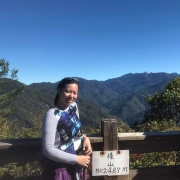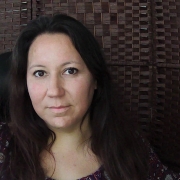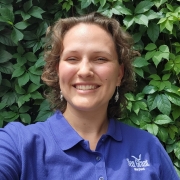Knauss legislative fellowships in Congress help build careers — and they're fun and educational. See our video and fact sheet for details.
Past Post Graduate Fellows
Maryland Law and Policy Fellowship

Fellowship at:
Agriculture Law Education Initiative and Maryland Sea Grant CollegeCool Facts:
While in law school, Hardy served as the environmental justice managing editor for the Vermont Journal of Environmental Law. In his free time, he enjoys hiking, playing basketball, reading, playing guitar, and watching movies.
Fellowship at:
Agriculture Law Education Initiative and Maryland Sea Grant CollegeCool Facts:
As an islander who grew up in Taiwan, her love for the land, coast, and ocean is the driving force behind her research and career path. She enjoys working in an interdisciplinary arena where law and science can complement each other in policy-making processes. Her recent research has been published in the Journal of Environmental Studies and Sciences.
Fellowship at:
Agriculture Law Education Initiative and Maryland Sea Grant CollegeCool Facts:
Elissa Torres-Soto is a recent Environmental and Energy Law LL.M. graduate from Georgetown University Law Center. With the supervision of Nicole Cook from the Agriculture Law Education Initiative (ALEI), she is currently working on a legal journal article about the standing requirements to present a protest to a new commercial shellfish aquaculture lease in the State of Maryland. She is also working on a fact sheet about how to transfer a commercial shellfish aquaculture lease in Maryland. Another of Elissa’s projects includes developing a guide for navigating the state and federal permitting processes for nature-based projects on the Chesapeake Bay Critical Area. Elissa completed her fellowship in fall 2021 and is now working as a staff attorney with the Environmental Law Institute in Washington D.C.State Science Policy Fellowship

Fellowship at:
Maryland Department of the EnvironmentCool Facts:
Macon greatly enjoyed living in California and white water rafting in the Trinity Alps but is excited to return to his home state, where he enjoys sailing on the Chesapeake Bay and hiking in the Appalachian Mountains. He hopes to leverage his experience in public communications and interagency coordination to build bridges between the state and local communities to break down barriers for more resilient environmental policies.
Fellowship at:
University of Maryland Center for Environmental ScienceCool Facts:
Kayle’s research interests are broad but focus on ecological systems response to anthropogenic stressors. Her spare time is spent keeping up with her family, reading and exploring the east coast.
Fellowship at:
Maryland Department of the EnvironmentCool Facts:
Aubrey is deeply interested in applied, community-focused science that bridges the gap between natural science understanding and social applications of knowledge. She is also interested in combining natural and social science methods to measure environmental management impacts. In her free time, Aubrey enjoys rock climbing, hiking, cooking and baking, reading, theater, and spoiling her adorable cat.
Fellowship at:
Maryland Environmental ServiceCool Facts:
Khurshid Jahan holds a Ph.D. in Geosciences at the University of Rhode Island, USA and a MSc in Hydrogeology and Environmental Geology from the University of Dhaka, Bangladesh. Recently she was awarded by the Rhode Island Society of Environmental Professionals to support her research on stormwater management. In addition, URI awarded her the 2019 John J. Fisher Memorial Award for excellence as a teaching assistant in geology. Her current research expands on this and explores relations between climate change, urbanization, environmental impact, and water quality degradation.
Fellowship at:
Maryland Department of the EnvironmentCool Facts:
Rachel Lamb earned her PhD in Geographical Sciences at the University of Maryland College Park in Spring 2021. Her research centers on the applications of NASA Carbon Monitoring System forest carbon science to advance strategic climate mitigation planning with co-benefits for biodiversity and human livelihoods. Since 2020, she has lead the Campus Forest Carbon project, helping the University of Maryland better incorporate forest carbon science into their Climate Action Plan and Greenhouse Gas Inventory.
Fellowship at:
University System of Maryland Office for the Vice President for SustainabilityCool Facts:
Tassew Mekuria is a State Policy Fellow working for the University of Maryland Center for Environmental Science on environmental policy issues in support of the Science and Technology Working Group of the Maryland Commission on Climate Change. Mekuria is also assisting the Office of the University System of Maryland Chancellor on environmental sustainability issues. He earned a Master's in Biology and PhD in Bioenvironmental Science from Morgan State University.Science Management and Policy Internship






